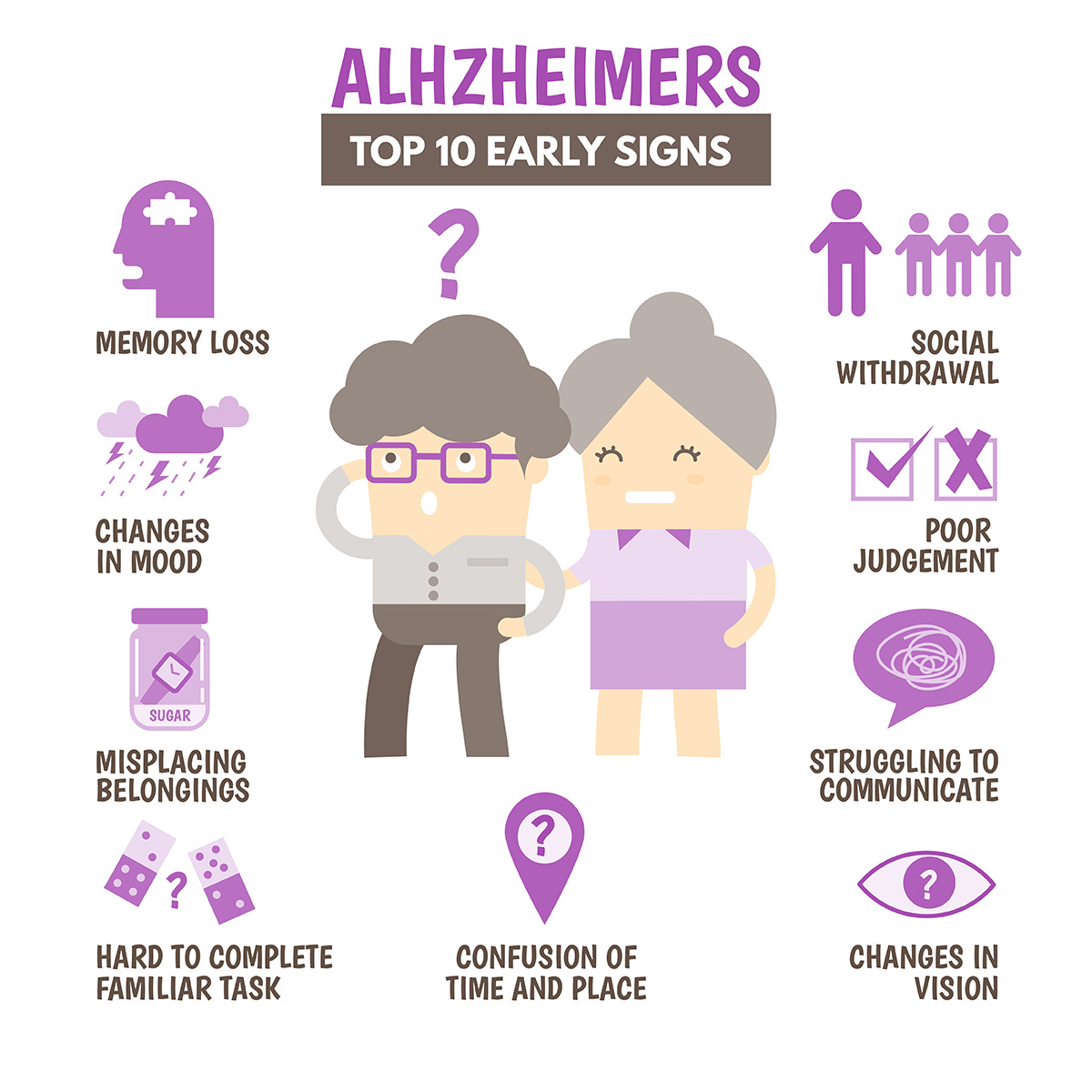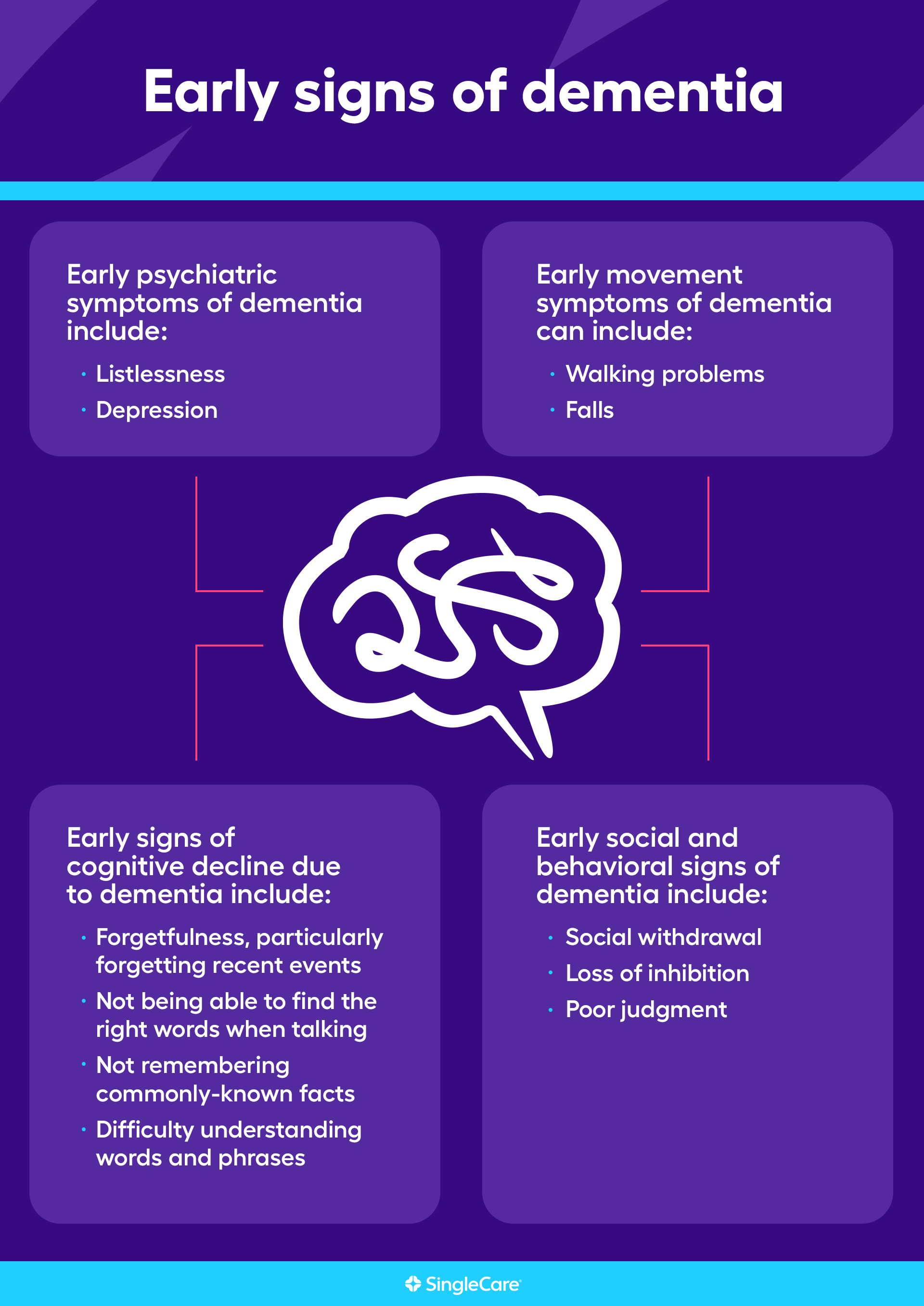Traveling Tips When Supporting Someone With Early Onset Dementia
Traveling Tips When Supporting Someone With Early Onset Dementia
Blog Article
Comprehending the Effect of Dementia on Day-to-day Live and Caregiving
Mental deterioration impacts day-to-day life in profound methods, impacting not just those detected but likewise their caretakers. As cognitive decline advances, you could discover modifications in interaction and routine that difficulty both events.
The Stages of Dementia and Their Results on Life
As you browse the trip of mental deterioration, recognizing its stages can significantly influence just how you take care of day-to-day life. Mental deterioration typically progresses through three main stages: early, middle, and late.
During the middle stage, you'll experience more noticeable cognitive decline. Daily tasks might become challenging, and maintaining your independence might call for changes. Using tips and simplifying your atmosphere can help.
In the late stage, individuals typically require considerable assistance with daily tasks. Preparation for treatment comes to be crucial, concentrating on comfort and high quality of life. By comprehending these stages, you're far better outfitted to react proactively, ensuring you or your loved one can browse the difficulties with dignity and poise.

Adjustments in Interaction and Social Interaction
Exactly how do adjustments in interaction influence your day-to-day communications as dementia progresses? As dementia advances, you could discover that easy conversations come to be tough.
You may find it easier to connect through these means rather than relying only on talked language. Listening skills can also transform; you could locate it more challenging to keep in mind or follow discussions what was simply stated (Early Onset Dementia). This can result in misunderstandings or sensations of isolation
Urging persistence and creating an encouraging atmosphere can aid. Participating in tasks that promote connection, like songs or art, can improve social interactions. Remember, preserving partnerships is still possible; it's simply about adapting to brand-new ways of connecting.
Influence On Daily Routines and Activities
While steering day-to-day regimens, you'll likely notice that tasks you once completed effortlessly ended up being a lot more tough as mental deterioration proceeds. You might find yourself forgetting steps in familiar routines or struggling to recall where you put products.
Adapting your environment can help; for circumstances, identifying items or using lists can simplify jobs. Involving in repetitive, organized tasks can also provide convenience and a sense of success. Keep in mind, it's alright to ask for aid.
Behavior and psychological Challenges
Guiding via everyday routines can bring about not simply functional difficulties, however behavior and likewise emotional ones. You might observe modifications in mood, such as boosted stress and anxiety or stress, which can come from complication or problem in finishing tasks. As you browse these moments, it is essential to acknowledge that your enjoyed one may share their feelings with actions like anxiety or withdrawal.
These psychological reactions can be uncertain and may develop without caution, leaving you both feeling bewildered. You could find that acquainted environments or routines can aid reduce stress and anxiety, yet maintaining persistence comes to be significant. It is necessary to confirm their feelings, even if you do not totally comprehend them.
The Duty of Caregivers in Sustaining Individuals With Dementia
As a caregiver, you play an essential role in supplying psychological assistance for people with dementia. Establishing everyday treatment regimens can develop a sense of stability and convenience, aiding to reduce their anxiousness. By understanding their needs and utilizing efficient methods, you can greatly enhance their top quality of life.
Psychological Support Techniques
When caring for someone with dementia, recognizing the psychological landscape is crucial for providing effective assistance. Easy motions, like holding their hand or keeping eye contact, can produce a sense of security. Inevitably, don't neglect to take care of your own psychological demands; looking for assistance for on your own can improve your capability to care for them.
Daily Care Routines
Developing daily treatment routines is important for giving stability and convenience to individuals with mental deterioration, as these routines can help in reducing confusion and anxiousness. You can start by detailing a consistent routine for dishes, activities, and remainder. This predictability aids your liked one really feel more safe and get redirected here involved.
Incorporate acquainted jobs, like folding laundry or watering plants, which can stimulate positive memories and promote a feeling of accomplishment. Use aesthetic cues, such as calendars or lists, to lead them through the day.
Be versatile, though; adjust routines as required based upon their mood or energy degrees. Vascular Dementia. Keep in mind, your perseverance and understanding are important in steering their altering demands, ensuring they really feel supported and valued throughout their day-to-day live
Producing a Safe and Comfortable Living Atmosphere
Creating a comfy and risk-free living environment is necessary for individuals with mental deterioration. You'll desire to make home safety and security alterations that minimize risks and guarantee knowledge to offer a sense of comfort. By focusing on these elements, you can help produce an area that supports both security and health.
Home Safety Alterations
As you browse the difficulties of mental deterioration, making home security adjustments can considerably enhance comfort and safety. Begin by getting rid of tripping hazards like rugs and clutter, assuring walkways are clear. Set up grab bars in washrooms and non-slip mats in the shower to stop drops. Take into consideration using brighter lights and night lights to improve exposure, particularly during nighttime. Label important areas, such as the restroom and kitchen area, with clear indicators to assist with orientation. Safeguard any sharp objects or hazardous substances unreachable. Additionally, analyze your home's locks and alarm systems to confirm they're user-friendly and supply assurance. These alterations not just promote safety and security but also urge self-reliance, allowing your enjoyed one to really feel more comfortable in their setting.
Convenience and Familiarity
After making sure a secure setting with needed modifications, cultivating convenience and experience is essential for individuals with mental deterioration. Preserve a regular regular to help them feel grounded and reduce anxiousness. Involving in acquainted activities, such as paying attention to music or gardening, can enhance their sense of belonging, making their living setting a true refuge.
Strategies for Efficient Caregiving and Assistance
While maneuvering the challenges of dementia treatment can feel overwhelming, executing effective approaches can significantly enhance both the caregiver's and the patient's day-to-day experience. Begin by establishing a routine; predictability helps decrease anxiousness for both you and your liked one. Usage clear, straightforward interaction-- brief sentences and straight inquiries can avoid confusion.

Do not fail to remember to look after on your own; timetable breaks and connect with assistance groups. Sharing experiences with others in comparable situations can offer beneficial insights and psychological alleviation.
Finally, stay client and adaptable. Mental deterioration can bring uncertain modifications, so adapting your approach is vital. By utilizing these methods, you can cultivate an extra favorable atmosphere that profits both you and your loved one.
Frequently Asked Inquiries

What Are the Different Kinds of Dementia?
You'll find a number of sorts of mental deterioration, consisting of Alzheimer's, vascular mental deterioration, Lewy body mental deterioration, and frontotemporal dementia. Each kind affects memory and cognitive feature in different ways, so understanding the distinctions is essential for correct diagnosis and care.
Just How Can I Aid Somebody With Early-Stage Dementia?
You can assist somebody with early-stage dementia by holding your horses, providing assistance, and encouraging them to participate in activities they enjoy. Keeping regimens consistent and maintaining open communication can also make a significant difference in their every day life.
Exist Financial Resources Available for Dementia Treatment?
Yes, there are economic sources readily available for mental deterioration treatment. You can explore federal government help programs, nonprofit companies, and insurance coverage options. great site It's likewise smart to speak with regional firms for certain resources customized to your situation.
What Lawful Considerations Should Caregivers Recognize?
As a caretaker, you should think about power of attorney, healthcare proxies, and guardianship regulations. It's vital to comprehend the legal rights and duties you hold, ensuring your loved one receives proper treatment and security.
Just How Can I Deal With Caretaker Tension?
You can deal with caregiver stress by focusing on self-care, looking for assistance from buddies or teams, establishing practical assumptions, taking breaks, and practicing leisure techniques. Bear in mind, your health matters equally as long as the person you're looking after.
Understanding the Effect of Dementia on Daily Life and Caregiving.
As you can try here you browse the journey of mental deterioration, recognizing its stages can significantly affect exactly how you manage everyday life.While steering day-to-day regimens, you'll likely observe that tasks you once completed effortlessly come to be extra difficult as mental deterioration progresses.Developing everyday treatment regimens is vital for offering stability and convenience to people with dementia, as these routines can assist lower complication and stress and anxiety.While maneuvering the difficulties of mental deterioration treatment can really feel overwhelming, executing efficient techniques can greatly improve both the caregiver's and the person's everyday experience.
Report this page